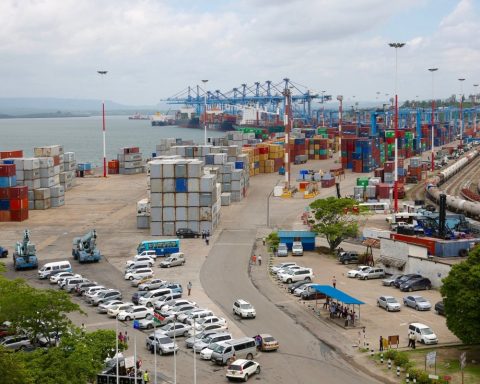The new report by UK-based Tax Justice Network ranks Kenya fourth in secret financial dealings in Africa.
Kenya’s financial sector is among the most secretive globally, according to a new report by the UK-based Tax Justice Network.
The index considers financial secrecy services used by tax evaders seeking to stash illicit wealth offshore.
It takes into account the degree to which a country’s financial and legal system allows non-residents to hide and launder their money.
Kenya is ranked position four in the continent after Angola which eclipsed Algeria to rank position 33 globally.
Algeria is at position 34 followed by Liberia and Kenya at positions 40 and 43 respectively.
Globally, the country’s ranking dropped to position 43 from top 30 last year, meaning more countries are becoming opaque in terms of financial transparency.
Kenya’s Financial Secrecy Index (FSI) improved from 75 per cent last year to 67, accounting for 0.03 per cent of the global share.
The country’s transparency has been improving over the years, from the worst ranking of position 23 globally in 2018.
The poor financial transparency is despite the country coming up with new regulations in February to combat secrecy and corruption in Kenya’s public procurement.
Through a legal notice, Kenya’s Attorney General introduced new regulations on beneficial ownership to reinforce those introduced in 2015 and 2019.
The Beneficial Ownership Information) (Amendment) Regulations, 2022 introduced additional provisions regulating the disclosure of beneficial ownership information.
However, the TJN report says that the regulations lack clarity on whether companies that are part of public-private partnerships will see their beneficial ownership details made public.
“There are limited requirements on overseas companies and trusts to provide beneficial ownership details to the Business Registration Service (BRS) even though these entities are often used for tax abuse and corruption,” the report says.
It adds that no mechanism to verify that the beneficial ownership information collected by the BRS is accurate.
East Africa Tax and Governance Network, believes it is vital that beneficial ownership details are made public.
The report also criticises the country’s move to establish an International Financial Centre.
Nairobi International Financial Centre (NIFC) was launched in July and aims to raise over $2 billion in targeted incremental cumulative investments by 2030.
Those opposing the centre say some of the incentives given are likely to turn the country into a tax haven like Panama and Virgin Islands.
Even so, the government insists that the centre is designed to strengthen the country’s global competitiveness by making it easier and more attractive to invest and conduct financial services, transactions, and related activities.
The United States climbed to the top of a 2022 financial secrecy index followed by the likes of Switzerland, Luxembourg, the United Arab Emirates and the British Virgin Islands.
The amount of financial secrecy the US enables is the biggest ever recorded by the index and is nearly twice as big as Switzerland, which ranks second.
According to the report, The FSI global share for America is 5.74 per cent, Switzerland at 3.99 per cent, and Singapore is ranked third at 3.43 per cent.
The report said the world’s most important providers of financial secrecy harbouring looted assets are mostly not small, palm-fringed islands as many suppose, but some of the world’s biggest and wealthiest countries.
According to the report, $21 to $32 trillion of private financial wealth is located, untaxed or lightly taxed, in secrecy jurisdictions around the world.
Illicit cross-border financial flows have been estimated at $1 to $1.6 trillion per year, dwarfing the $135 billion per year or so in global foreign aid.
According to the report, African countries alone have lost over $1 trillion (more than Sh100 trillion) in capital flight, huge than the continent’s combined external debt which is less than $200 billion.












